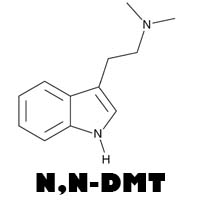The Future of Psychedelic Research: Promising Avenues
The resurgence of interest in psychedelics has opened up numerous promising avenues for research. As scientists and researchers continue to explore these substances, new discoveries are being made about their potential therapeutic applications, mechanisms of action, and broader impacts on mental health and well-being. This article will delve into the future of psychedelic research and the most promising areas for further investigation.
Therapeutic Applications
Psychedelics have shown great promise in treating a variety of mental health conditions. Future research aims to expand our understanding of their therapeutic potential and optimize their use in clinical settings.
1. Treatment-Resistant Depression
Psilocybin and other psychedelics have demonstrated efficacy in treating depression that does not respond to traditional therapies. Future studies will focus on refining dosing protocols, identifying biomarkers for treatment response, and understanding the long-term effects of psychedelic therapy for depression.
2. Anxiety Disorders
Research is exploring the use of psychedelics for various anxiety disorders, including generalized anxiety disorder, social anxiety, and panic disorder. Clinical trials are investigating how these substances can reduce anxiety symptoms and improve overall quality of life.
3. PTSD (Post-Traumatic Stress Disorder)
MDMA-assisted therapy has shown significant promise in treating PTSD. Future research will aim to validate these findings in larger and more diverse populations, as well as explore the potential of other psychedelics, such as psilocybin and ayahuasca, in PTSD treatment.
4. Addiction Treatment
Psychedelics like psilocybin and ibogaine are being studied for their potential to treat substance use disorders, including alcoholism, nicotine addiction, and opioid dependence. Researchers are investigating how these substances can help reset neural pathways and support long-term recovery.
Mechanisms of Action
Understanding how psychedelics work in the brain is crucial for developing targeted therapies and optimizing their use. Future research will delve deeper into the mechanisms of action of these substances.
5. Neuroplasticity and Synaptogenesis
Psychedelics have been shown to promote neuroplasticity and synaptogenesis. Future studies will explore the specific pathways and molecular mechanisms involved in these processes, with the goal of harnessing these effects for therapeutic purposes.
6. Serotonin Receptor Modulation
Psychedelics primarily interact with serotonin receptors, particularly the 5-HT2A receptor. Research will continue to investigate how modulation of these receptors leads to changes in perception, cognition, and emotion, and how these changes can be leveraged in treatment.
Broader Impacts on Mental Health
Beyond specific therapeutic applications, psychedelics have the potential to broadly impact mental health and well-being. Future research will explore these broader effects.
7. Enhanced Emotional Processing
Psychedelics can facilitate enhanced emotional processing and openness. Studies will investigate how these effects can be utilized in therapeutic settings to improve emotional regulation and interpersonal relationships.
8. Personal Growth and Self-Exploration
Psychedelics are known to induce profound experiences of personal growth and self-exploration. Research will examine how these experiences can lead to lasting positive changes in behavior, outlook, and quality of life.
9. Spiritual and Existential Insights
Many individuals report spiritual or existential insights from psychedelic experiences. Future studies will explore how these insights can contribute to overall well-being, resilience, and a sense of purpose.
Challenges and Considerations
As psychedelic research advances, several challenges and considerations must be addressed to ensure safety and efficacy.
10. Ethical and Legal Considerations
The legal status of psychedelics remains a significant barrier to research. Advocacy for policy changes and ethical considerations for clinical use will be crucial as the field progresses.
11. Standardization of Protocols
Standardizing research protocols and treatment methodologies will be essential for ensuring consistent and reproducible results. This includes developing guidelines for dosing, setting, and integration practices.
12. Addressing Risks and Adverse Effects
While psychedelics have shown great promise, they also carry risks, including potential for abuse and adverse psychological effects. Future research will focus on identifying risk factors and developing strategies to mitigate these risks.
Conclusion
The future of psychedelic research holds tremendous promise for advancing our understanding of these substances and their potential benefits. By exploring therapeutic applications, mechanisms of action, and broader impacts on mental health, researchers can unlock new possibilities for treating mental health conditions and enhancing overall well-being. As the field continues to evolve, it is essential to address ethical, legal, and safety considerations to ensure that the benefits of psychedelics are realized in a responsible and effective manner.
Suggested Images for the Blog Post
- Therapeutic Applications: Images of therapy sessions, clinical trials, and patient interactions.
- Neuroplasticity and Synaptogenesis: Diagrams showing neural connections and brain plasticity.
- Broader Impacts on Mental Health: Photos representing emotional well-being, personal growth, and spiritual insights.
- Challenges and Considerations: Visuals of legal documents, ethical discussions, and safety protocols.






